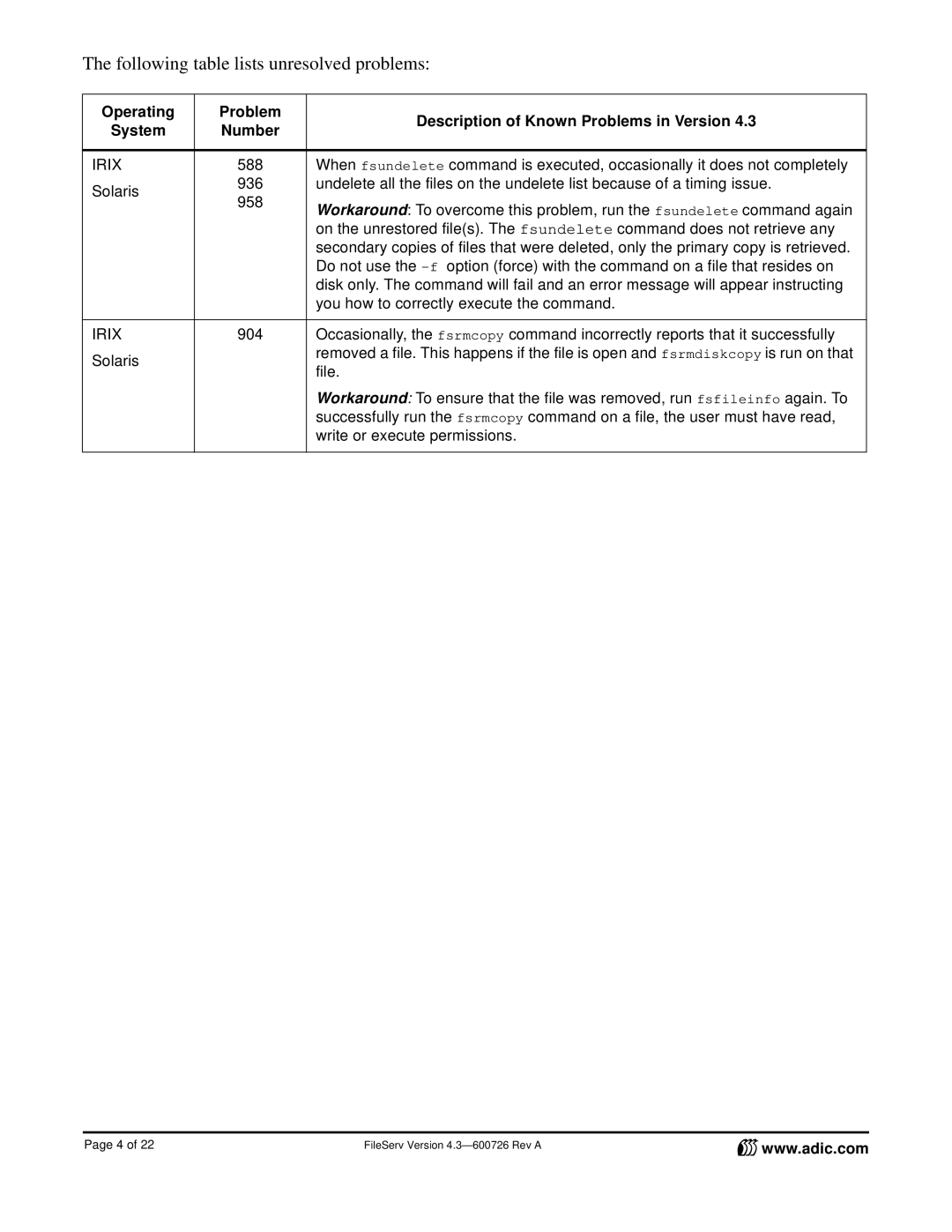The following table lists unresolved problems:
Operating | Problem | Description of Known Problems in Version 4.3 | |
System | Number | ||
| |||
|
|
| |
IRIX | 588 | When fsundelete command is executed, occasionally it does not completely | |
Solaris | 936 | undelete all the files on the undelete list because of a timing issue. | |
958 |
| ||
| Workaround: To overcome this problem, run the fsundelete command again | ||
|
| ||
|
| on the unrestored file(s). The fsundelete command does not retrieve any | |
|
| secondary copies of files that were deleted, only the primary copy is retrieved. | |
|
| Do not use the | |
|
| disk only. The command will fail and an error message will appear instructing | |
|
| you how to correctly execute the command. | |
|
|
| |
IRIX | 904 | Occasionally, the fsrmcopy command incorrectly reports that it successfully | |
Solaris |
| removed a file. This happens if the file is open and fsrmdiskcopy is run on that | |
| file. | ||
|
| ||
|
| Workaround: To ensure that the file was removed, run fsfileinfo again. To | |
|
| successfully run the fsrmcopy command on a file, the user must have read, | |
|
| write or execute permissions. | |
|
|
|
Page 4 of 22 | FileServ Version | www.adic.com |
